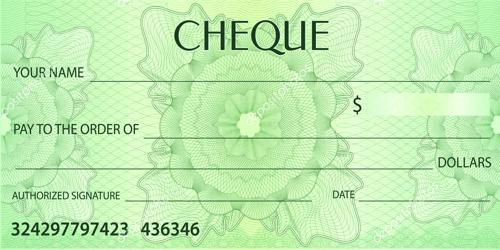All cheques are bills but all bills are not cheques –
A cheque is an instrument in writing containing an unconditional order, addressed to a banker, sign by the person who has deposited money with the banker, requiring him to pay on demand a certain sum of money only to or to the order of the certain person or to the bearer of the instrument.
A cheque differs from a bill of exchange in the following respects:
- Drawee:
A cheque is always drawn on a bank or a banker while a bill of exchange can be drawn on any person including a banker.
- Acceptance:
A cheque does not require any acceptance while a bill must be accepted before the drawee can be made liable upon it.
- Payment:
A cheque is payable immediately on demand without any days of grace, but a bill of exchange is normally entitled to three days of grace unless it is payable on demand.
- Crossing:
A cheque may be crossed but there is no such provision in the case of a bill of exchange.
- Notice of dishonor:
When a cheque is not met, notice of dishonor is not necessary. Want of assets in the hands of the banker is sufficient notice. It is necessary to give notice of dishonor in order to make the drawer of a bill liable.
- Payable to bearer on demand:
A cheque can be drawn payable to bearer on demand. But a bill of exchange cannot be so drawn.
- Stamp:
A bill of exchange must be stamped, whereas a cheque does not require any stamp.
- Countermanding payment:
A cheque may be revoked by countermand of payment. The payment of a bill, however, cannot be countermanded.
- Noting and protesting:
A cheque is not noted or protested for dishonor and is generally inland.
- Presentment:
A bill of exchange must be duly presented for payment otherwise the drawer will be discharged. The drawer of a cheque is not discharged by a failure of the holder to present it in due time unless the drawer has sustained damage by the delay.
- Protection:
A banker is given statutory protection with regard to payment of cheques in certain circumstances. No such protection is available to the drawee or acceptor of a bill of exchange.
















